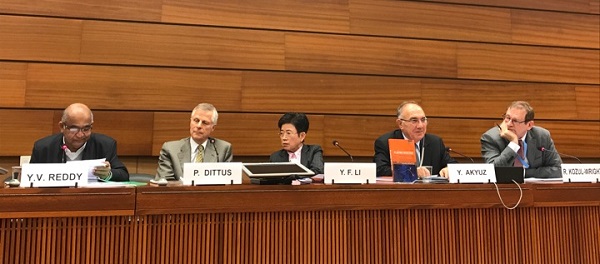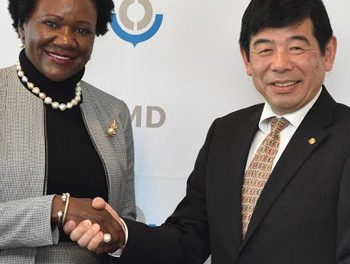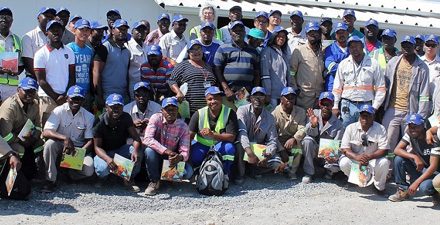
Rise of finance leading factor in rising inequality

Excerpt based on an article by Adriano José Timossi, Senior Programme Officer of the Global Governance for Development Programme (GGDP) of the South Centre.
“The global financial system remains fragile. The world economy struggles to recover. Climate change accelerates. Digitization and globalization depress wages. Income inequality is on the rise. Geopolitical turbulences are spreading. Lies are presented as truths. Truth remains unspoken. And people are angry. Karl Marx thought that capitalism was sowing the seeds of its own destruction, eventually leading to a revolution. We believe that rather than anonymous forces, it is the policies of the G7 countries that are now undermining the foundations of the market economy. The G7 policies in the domains of monetary policy, fiscal and macroeconomic policy, prudential policy, defence and climate change policy have a common feature: They are lax, reckless, and irresponsible”.
These astute observations were expressed by Dr YV Reddy in November this year when he participated in a panel of experts to mark the launch of a new book, Playing with Fire, authored by Dr Yilmaz Akyüz, the Chief Economist of the South Centre. The panel discussion took place at the UN Office in Geneva, Switzerland.
The panel was moderated by Mrs Yuefen Li, Special Advisor on Economics and Development Finance of the South Centre, with presentations by Dr. Richard Kozul-Wright, Director of the Division on Globalization and Development Strategies (GDS), UNCTAD, Dr. Y.V. Reddy, South Centre Board Member and Former Governor of the Reserve Bank of India, and Dr. Peter Dittus, Former Secretary General of the Bank for International Settlements (BIS).
Mrs Li said that 20 years from the Asian financial crisis and 10 years from the subprime crisis, there is now a significant build-up of financial fragility in the world economy. Playing with Fire provides a wealth of data and information with insightful analysis of the integration of emerging and developing economies into the global financial system.
Dr. Richard Kozul-Wright welcomed Dr. Akyüz’s book as it brings new and challenging insights to the discussions on development policy. The UNCTAD economist noted that Playing with Fire provides a comprehensive treatment of global financial linkages of emerging and developing economies and the vulnerabilities they entail. In this regard, the book describes two sets of linkages. First, the institutions, innovations and policies that propelled finance to its vanguard role in what Dr. Akyüz describes as finance-led globalization or what UNCTAD calls “hyper-globalization”. Secondly, the linkages which trace the impact of financialization in the world economy.
Dr. Kozul-Wright enumerated three key relations raised in the book; namely, the finance-inequality nexus, the finance-commodity nexus and the nexus between finance and foreign direct investment. Quoting examples of the work done by Stiglitz and Piketty, he said that already in the 1990s the issue was first brought to attention by UNCTAD in its Trade and Development Reports, prepared under Dr. Akyüz’s guidance, addressing the relationship between rising inequality and growing dominance of finance.
Dr Reddy further noted that Dr. Akyüz’s book combines important elements of academic work, policy and institutions. “A monster has been created which is still not under control. Increasingly it seems as if the 2008 Great Financial Crisis may only have been a dress rehearsal for a worse crisis which lies ahead. It will come as the result of the excessive use of the money printing press, the build-up of asset price bubbles, the debt accumulation encouraged by low or negative interest rates.”
Dr. Peter Dittus said “one can see that vulnerabilities of emerging and developing economies have actually increased today. This, despite the fact that many countries have moved to floating exchange rates, accumulated large amounts of reserves and pursued much better fiscal policies. The fragility and potential exposure to a crisis in the world has actually increased, and policy options to deal with it have decreased.”
“The policy of rapid liquidity expansion and low interest rates has given rise to a search for yield and greater appetite for risk. It has therefore played a key role in the growing international lending and investment in emerging and developing economies. External financial liberalization in these economies themselves also played an important role. Some of the measures taken were designed with the objective of reducing external vulnerability. However, in reality they have created new sources of vulnerability without removing the old ones,” he continued.
“Many of these economies have taken certain measures to increase their resilience to financial shocks,” said Dr Dittus. “However, useful as they are, these can prove inadequate in the face of a severe external financial shock and massive and sustained exit of capital. It is not possible to anticipate when and how this might occur, but the credit and asset bubbles under way for almost a decade do not look sustainable.”
Pictured at the South Centre panel discussion, from the left, Dr YV Reddy, Dr Peter Dittus, Mrs Yuefen Li, Dr. Yılmaz Akyüz and Dr. Richard Kozul-Wright.













































